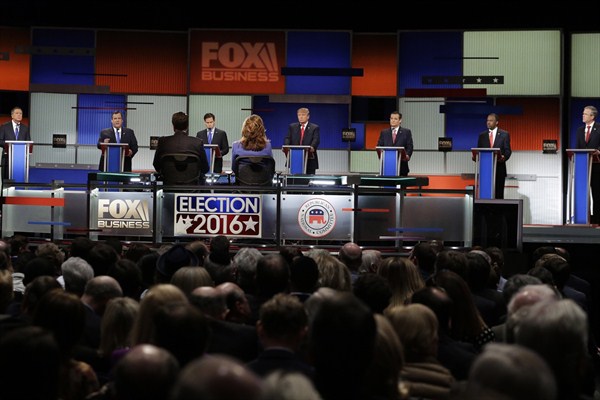As the Republican candidates in the presidential race work to define themselves and stand out from the crowded competition for the party nomination, many claim to be the heir of GOP icon Ronald Reagan. This makes sense given Reagan’s enduring popularity. This is particularly true for national security policy, where Reagan is considered a great success who revived American influence and paved the way for the end of the Cold War. But while claiming Reagan’s mantle, none of the candidates seem interested in actually emulating his strategy.
One of the keys to Reagan’s success was lavishing resources on the U.S. military but, with the exception of the ill-advised peacekeeping mission to Lebanon, using force carefully. Reagan and his advisers recognized that every security challenge was not amenable to a military solution, and that the U.S. armed forces should not be used promiscuously. Since 9/11, though, Washington has thrown the military at all sort of threats with little regard for whether they can be eradicated through armed force. Most of the ideas for dealing with the self-described Islamic State touted by today’s presidential candidates repeat this unfortunate pattern in a most un-Reaganesque way.
Even while strengthening the military, however, Reagan recognized the importance of arms control, knowing that military strength and arms control were two sides of the same coin. By deploying ground-launched cruise missiles and Pershing II ballistic missiles to Europe over stiff opposition, for instance, he pressured the Soviet Union to sign the 1987 Intermediate Range Nuclear Forces Treaty. Reagan’s arms control initiatives took America’s allies into account, but ultimately agreements were based on whether they made the United States more secure. Today’s presidential candidates seem to have little use for arms control, except as ammunition in partisan attacks against their political rivals.

